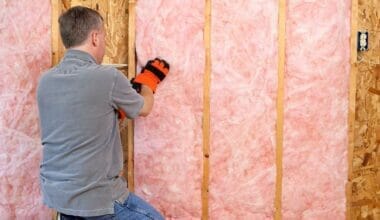If you live in a flat, you may be wondering, will the council soundproof my flat? There are several factors to consider when soundproofing your home, including the cost, materials used, and impact noise reduction. You should also be aware of the legal obligations of the local authority, since they have a duty to enforce the law. Read on to learn more. We’ve got the scoop on the cost of soundproofing.

Cost of soundproofing a home
If you’re building a recording studio in your home, you’ll need to master soundproofing. There are several methods for this, including soundproof drywall and textured wall panels. The cost varies by room size and quantity, but acoustic foam costs about $40 per panel. Soundproof drywall costs around $40 per sheet, and textured paint costs under $100 a square foot. Mass-loaded vinyl, a dense, heavy material used in soundproofing, is another soundproofing option. It costs anywhere from $40 to $200 per square foot, and can be applied to walls and floors. If you’d rather do it yourself, you can hire a professional to do the job for you for a few hundred dollars.
The most common rooms for soundproofing are bedrooms. Apartment buildings often include soundproof windows and doors, but in some homes, walls may also need to be installed. Soundproofing a 10-foot by 10-foot bedroom will cost about $300 to $1,500, and depends on how much work you want to do yourself. If you’re planning to soundproof an entire house, you should budget $23,000 to $46,000.
Materials used
In addition to traditional walls and flooring, you may also choose to install acoustic materials in your flat. These materials are designed to reduce the sound produced in a flat, and they are available in different styles, including specially laminated versions used for industrial applications. They can be either flat or have a topological pattern, which acts as a natural soundproofing agent. In addition to their absorption properties, these materials are also good at absorbing sound.
To understand why acoustic materials are so effective, consider an aquarium analogy. The walls of an aquarium can be made of sponges that absorb sound, while the ones on top block it. A good seal, glass, and dense rubber sweeps all work to reduce sound transmission. Soundproof windows and doors use decoupling to reduce sound and often have thick glass panes. Similarly, soundproof doors use increased depth and mass to reduce noise transmission.
Impact noise reduction
The effects of soundproofing on noise reduction can be significant, but not all methods are effective. One of the most effective methods is to use extra-thick drywall to block sound. Another effective technique is to install mass-loaded vinyl on floors. While concrete walls help reduce noise levels by keeping them from penetrating the floor, they cannot prevent sound from traveling through the ceiling and floor. Effective soundproofing should account for all possible paths for sound to travel.
There are two main types of noise, impact noise and airborne noise. Airborne noise is the noise you hear from TVs, people talking and dogs barking. Impact noise is more difficult to block out, as it originates from physical impact on a building or solid material. The reason is that impact vibrations travel through dense materials and are much more powerful than airborne vibrations. Most people have encountered both airborne and impact noise, whether from a noisy neighbor or from day-to-day living.
Legal obligations of local authorities
Local authorities are legally required to protect residents from noise from adjoining properties. This duty can be enforced by passing bylaws. Noise from neighbouring buildings or vehicles must be recorded, and any complaints about noise should be reported to the local council’s environmental health department. There may also be noise from individual vehicles that is excessive for the area. However, there are many other options, including obtaining a private noise compensation scheme, if this is not practical or desirable.
There are certain exceptions to the general duty of local authorities to soundproof flats, though. For example, a council may only require the landlord to soundproof a flat if the noise complaints are about the same volume. Similarly, a local planning authority may not require soundproofing if it is done for a larger building, like an office block or a shopping centre. However, this is unlikely to apply to residential properties.
